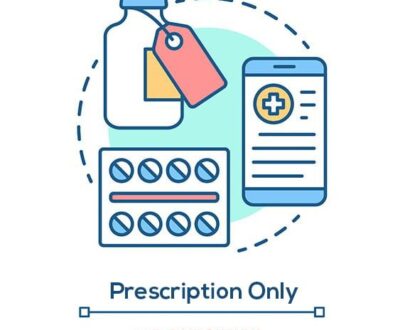Description
Epilim Tablets
Epilim tablets contain a medicine called sodium valproate. It works by helping to calm the brain down. As a result, it belongs to a group of drugs called anti-convulsants or anti-epileptic agents.
Do not take Epilim tablets and tell your doctor if:
- You are allergic (hypersensitive) to sodium valproate or any of the other ingredients of Epilim tablets. Signs of an allergic reaction include a rash, swallowing or breathing problems, swelling of your lips, face, throat, or tongue.
- Your family or you have a history of liver problems.
- A known metabolic disorder is affecting you, i.e., a urea cycle disorder.
- You have a rare illness called porphyria.
- If you have a genetic problem caused by a mitochondrial disorder (e.g., Alpers-Huttenlocher
syndrome). - Do not take this medicine if any of the above apply to you. If you are not sure, talk to your doctor or
pharmacist before taking Epilim Syrup.Warnings and precautions
A small number of people that use anti-epileptics such as sodium valproate have had thoughts of harming or killing themselves. If at any time you have these thoughts, immediately contact your doctor.
As with other anti-epileptic drugs, convulsions may become worse or happen more frequently while taking this medicine. If this happens, contact your doctor immediately.
Talk to your doctor or pharmacist before taking Epilim tablets if :
• You have diabetes. This medicine may affect the results of urine tests.
• A carnitine palmitoyltransferase type II deficiency.
• Have kidney problems. Your doctor may give you a lower dose.
• You have fits (epilepsy), brain disease, or a metabolic condition affecting your brain.
• You have an illness called ‘systemic lupus erythematosus (SLE)’ – a disease of the immune
system that affects skin, bones, joints, and internal organs.
• You know that a mitochondrial disorder causes a genetic problem in your family.
• If you are unsure if any of the above applies to you, talk to your doctor or pharmacist before
taking Epilim tablets.
Weight gain
Taking Epilim tablets may make you put on weight. Talk to your doctor about how this will affect you.
Blood tests
Your doctor may wish to do blood tests before you start taking Epilim tablets and during your
treatment.
Other medicines and Epilim tablets
Would you please tell your doctor or pharmacist if you are taking or have recently taken any other medicines? Including medicines you buy without a prescription, including herbal medicines. Because Epilim tablets can affect the way some other medicines work. Also, some drugs can affect the way Epilim Syrup works.
The following medicines can increase the chance of you getting side effects when taken with
Epilim tablets:
• Some medicines used for pain and inflammation (salicylates) such as aspirin.Some other medicines that treat fits (epilepsy). Including medicines such as phenobarbital, primidone, phenytoin, carbamazepine, rufinamide, topiramate, acetazolamide, lamotrigine and felbamate.
Epilim tablets may increase the effect of the following medicines:
• Nimodipine.
• Propofol – used for anesthesia.
The following medicines can affect the way Epilim tablets works:
• Some medicines are used for the prevention and treatment of malaria, such as mefloquine and
chloroquine.
• Antibiotics used to treat bacterial infections. They include imipenem,
meropenem, rifampicin, and erythromycin.
• Cholestyramine is used to lower blood fat (cholesterol) levels.
Taking Epilim tablets with food and drink
Avoid alcohol intake during treatment.
Pregnancy, breast-feeding and fertility
Important advice for women
• Valproate can be harmful to unborn children when taken by a woman during pregnancy.
• It can cause severe congenital disabilities and can affect how the child develops as it grows.
Congenital disabilities include spina bifida (where the bones of the spine are not properly developed); facial and skull malformations; heart, kidney, urinary tract, and sexual organ malformations; limb defects. Because valproate has been around for many years, we know that women who take valproate give birth to ten babies in every 100 with congenital disabilities. It compares to 2-3 babies in every 100 born to women who don’t have epilepsy.
• Autistic spectrum disorders are more often in children exposed to valproate and there is some evidence children may be more likely to develop symptoms of Attention Deficit Hyperactivity Disorder (ADHD).
• If you are a woman capable of becoming pregnant, your doctor should only prescribe valproate
for you if nothing else works for you.
• Ask your doctor about taking folic acid when trying for a baby. Folic acid can lower the general risk of spina bifida and early miscarriage that exists with all pregnancies. However, it is unlikely that it will reduce the risk of congenital disabilities associated with valproate use.
FIRST PRESCRIPTION
If this is the first time, your doctor will have explained the risks to an unborn child if you become pregnant. Once you are of childbearing age, you will need to make sure you use an effective method of contraception throughout your treatment. Talk to your doctor or family planning clinic if you need advice on contraception.
Key messages:
• Make sure you are using an effective method of contraception.
• Tell your doctor at once if you are pregnant or think you might be pregnant.
CONTINUING TREATMENT AND NOT TRYING FOR A BABY
If you are continuing treatment with valproate but don’t plan to have a baby make sure you are
using an effective method of contraception. Talk to your doctor or family planning clinic if you need
advice on contraception.
Key messages:
• Make sure you are using an effective method of contraception.
• Tell your doctor at once if you are pregnant or think you might be pregnant.
CONTINUING TREATMENT AND CONSIDERING TRYING FOR A BABY
Your doctor may decide to change the dose of valproate or switch you to another medicine before
you start trying for a baby.
If you do become pregnant, Your doctor will monitor you very closely both for the management of your
underlying condition and to check how your unborn child is developing.
Ask your doctor about taking folic acid when trying for a baby. Folic acid can lower the general risk
of spina bifida and early miscarriage that exists with all pregnancies. However, it is unlikely that it
will reduce the risk of congenital disabilities associated with valproate use.
Key messages:
• Do not stop using your contraception before you talk to your doctor.
• Tell your doctor at once when you know or think you might be pregnant.
UNPLANNED PREGNANCY WHILE CONTINUING TREATMENT
Babies born to mothers who have been on valproate are at serious risk of congenital disabilities and problems
with development which can be seriously debilitating. If you are taking valproate and you think you are pregnant or might be pregnant, contact your doctor at once. Do not stop taking your medicine until your doctor tells you to.
Ask your doctor about taking folic acid. Folic acid can lower the general risk of spina bifida and early
miscarriage that exists with all pregnancies. However, it is unlikely that it will reduce the risk of congenital disabilities associated with valproate use.
Key messages:
• Tell your doctor at once if you know you are pregnant or think you might be pregnant.
• Do not stop taking valproate unless your doctor tells you to.
Make sure you read the patient booklet and sign the Acknowledgement of Risk form, which should
be given to you and discussed with you by your doctor or pharmacist.
Breast-feeding
Very little Epilim gets into the breast milk. However, talk to your doctor about whether you
should breastfeed your baby.
Ask your doctor or pharmacist for advice before taking any medicine.
Driving and using machines
You may feel sleepy when taking Epilim tablets. If this happens to you, do not drive or use any tools or machines. Taking other medicines used to treat fits or calm emotional and mental health problems may increase sleepiness.
Get more products and services from DMRC KENYA right here. For a more interactive platform, be sure to find us on Facebook by clicking right here.

